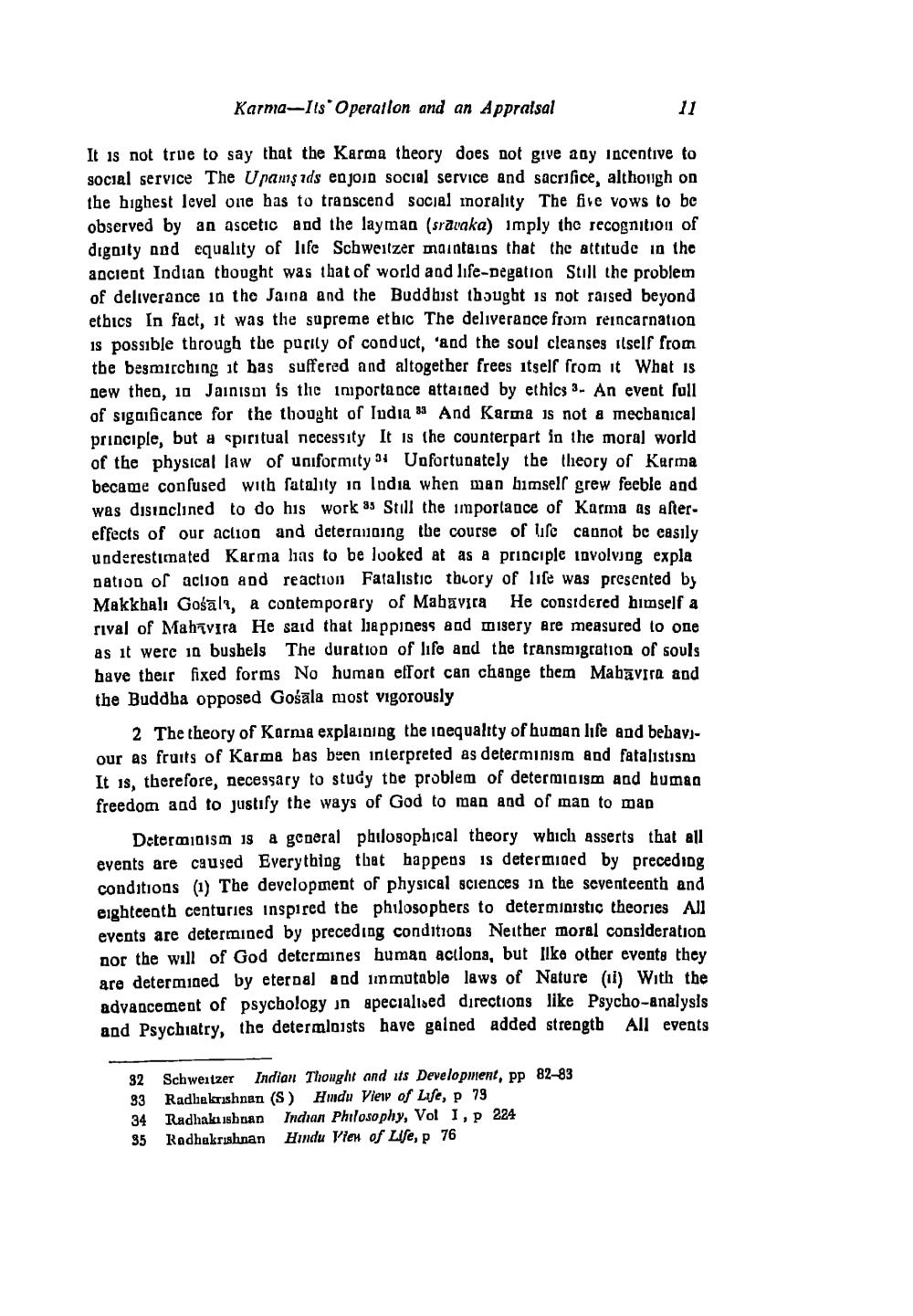________________
Karma-11s Operation and an Appraisal
It is not true to say that the Karma theory does not give any incentive to social service The Upamşids en jon social service and sacrifice, although on the highest level one has to transcend social inorality The five vows to be observed by an ascetic and the layman (sravaka) imply the recognition of digaity and equality of life Schweitzer maintains that the attitude in the ancient Indian thought was that of world and life-Degation Still the problem of deliverance in the Jaina and the Buddbist thought is not raised beyond ethics In fact, it was the supreme ethic The deliverance from reincarnation is possible through the purity of conduct, and the soul cleanses itself from the besmirching it has suffered and altogether frees itself from it What is new then, 10 Jainiso is the importance attained by ethics 3. An event full of sigaificance for the thought of ludia 38 And Karma is not a mechanical principle, but a spiritual necessity It is the counterpart in the moral world of the physical law of uniformity 31 Uofortunately the theory of Karma became confused with fatality 10 lodia when man bimsell grew feeble and was disinclined to do his work 85 Still the imporlance of Karma as aftereffects of our action and deteranging the course of use cannot be easily underestimated Karma has to be looked at as a principle involving expla nation of aclion and reaction Fatalistic theory of life was presented by Makkhali Gośāli, a contemporary of Mabavica He considered himself a rival of Mahavira He said that lieppiness and misery Are measured to one as it were in busbels The duration of life and the transmigration of souls have their fixed forms No human effort can change them Mahavira and the Buddha opposed Gośāla most vigorously
2 The theory of Karma explaining the inequality of human life and bebaysour as fruits of Karma bas been interpreted as determinism and fatalistism It is, therefore, necessary to study tbe problem of determinism and humaa freedom and to justify the ways of God to man and of man to man
Determinism is a general philosophical theory which asserts that all events are caused Everything that happens is determined by preceding conditions (1) The development of physical sciences in the seventeenth and eighteenth centuries inspired the philosophers to deterministic theories All events are determined by preceding conditions Neither moral consideration nor the will of God determines human actions, but like other events they are determined by eternal and inmutable laws of Nature (11) With the advancement of psychology in Apecialised directions like Psycho-analysis and Psychiatry, the determloists have gained added strength All events
32 33 34 35
Schweitzer Indian Thought and its Development, pp 82-83 Radhakrishnan (S) Hudu View of Life, p 79 Radhakrishnan Indian Philosophy, Vol 1, p 224 Radhakrishnan Hindu Vieu of Life, p 76




